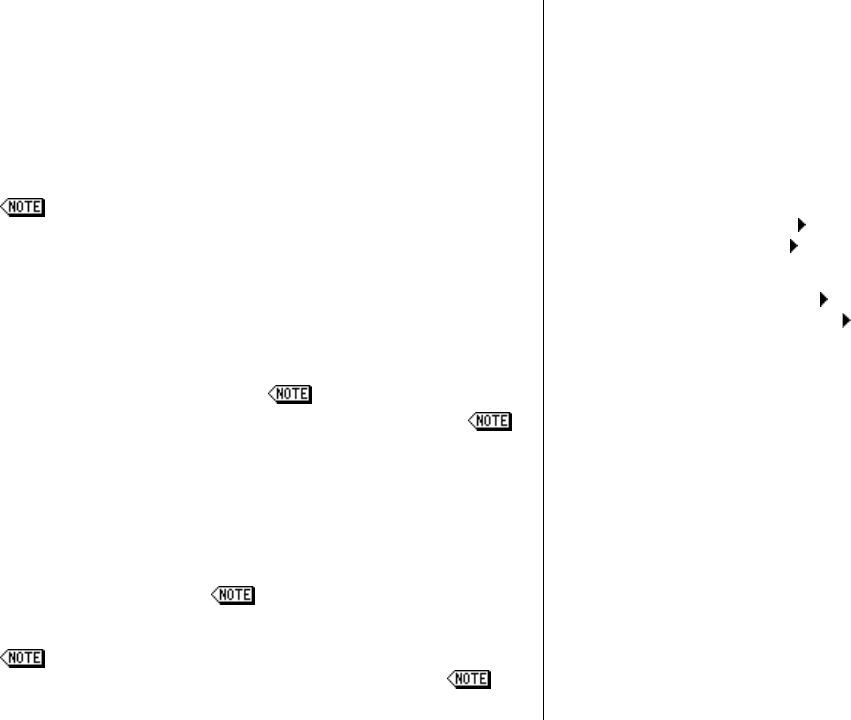
46
Selection of entries
The primary purpose of the thesaurus is to give lists of synonyms for the common
everyday words of English: words with roughly the same meaning as the entry word
or 'headword'. Not every word has synonyms. Some words, especially terms
denoting kinds of animals, plants, and physical objects, have no synonyms, so they
do not get entries in a thesaurus. The user will look in vain for synonyms of
gerbil
and
geranium
. There is an entry for
squirrel
, but it is not there for the noun denoting
the animal, which has no synonym. The entry is there in order to give synonyms for
the phrasal verb
squirrel something away
, and as a reference point for a table
(
) of different kinds of squirrels and related rodents.
The words selected as entries are general words that non-specialists are likely to
want to look up. It is the job of a dictionary, not a thesaurus, to explain the
meanings of unusual words, such as
supererogatory
, so such words do not get an
alphabetical entry here. However,
supererogatory
is given as a synonym at entries
for the more familiar words
inessential
,
needless
, and
unnecessary
. A thesaurus
can thus lead the user from the familiar to the unfamiliar, improving his or her word
power.
Tables (A table is displayed as a in this model.)
A special feature of the
New Oxford Thesaurus of English
is its 480 tables ( ),
which are included throughout to give additional information relevant to particular
headwords. They range from lists of different breeds or kinds of animals, birds, and
plants to lists of famous artists, architects, and scientists. For example, at the entry
for
actor/actress
there is a selection of synonyms for the words themselves,
together with a comprehensive list of well-known actors and actresses of both
stage and screen.
Certain headwords are included despite the fact that they have no synonyms, in
order to direct the user to a table ( ). For example, at the entry for
volcano
the user will find no synonyms but instead a pointer to a list of major volcanoes,
together with their location and the date of their most recent eruption. Tables
(
) covering the essential vocabulary of such fields as art, economics,
computing, and cricket are also included. The provision of these tables (
)
makes this thesaurus an invaluable aid to crossword-solving and a fascinating
source of encyclopedic information on subjects as diverse as marsupials and
military leaders.
Homonyms
Homonyms are words that are written the same but which have completely different
and unrelated meanings. For example, the
bark
of a dog is a completely different
word from the
bark
of a tree. There are three different words spelled
bay
, and four
spelled
sound
. Some words that are written with the same spelling are pronounced
differently. In such cases, a note on pronunciation is given, either by giving a word
that rhymes with the headword, e.g.
wind
1
(rhymes with 'tinned') noun
wind
2
(rhymes with 'mind') verb
or by stating where the stress falls, e.g.
defect
1
(stress on first syllable) noun
defect
2
(stress on second syllable) verb
Synonyms
It is sometimes argued that no two words have exactly the same meaning. Even
words as similar in meaning as
close
and
shut
may have slightly different nuances.
Closing
a shop implies that the shop is no longer open for business, so no one can
come in. On the other hand,
shutting
a shop implies that the shop is being made
secure, so nothing can be taken out. A similar distinction is found between
strong
and
powerful
:
powerful enemies
may threaten from outside, but a
strong defence
on
the inside will deter them from attacking. However, these are unusually subtle
distinctions. For most practical purposes,
close
and
shut
have the same meaning,
as do
strong
and
powerful
. Other synonyms are more distant, or emphasize
different aspects of the meaning. For example, another close synonym of strong is
muscular
, but it places much more emphasis on physical strength. By contrast,
stalwart
and
staunch
are synonyms that emphasize more abstract aspects of this
meaning of
strong
.
Forceful
,
secure
,
durable
,
loud
,
intense
,
bright
, and
alcoholic
are
other close synonyms of
strong
, but all in quite different senses. They are not, of
course, synonyms of each other.


















